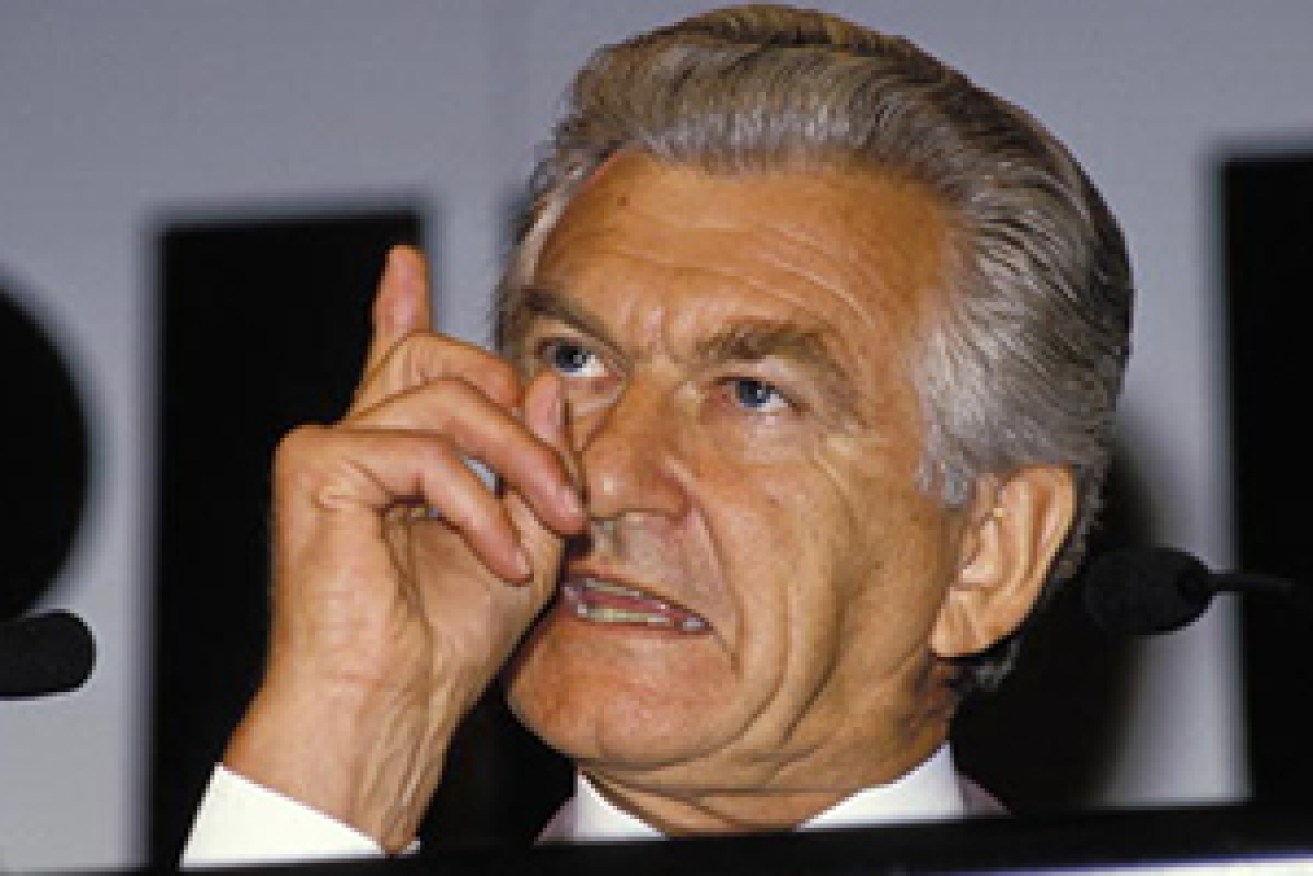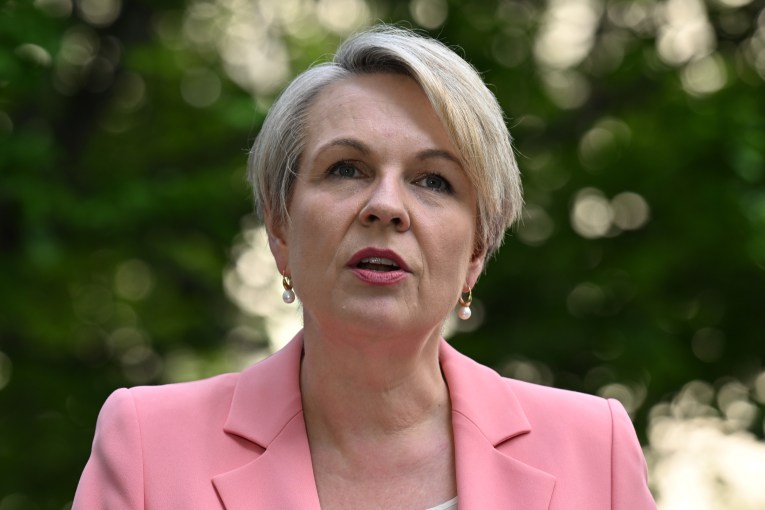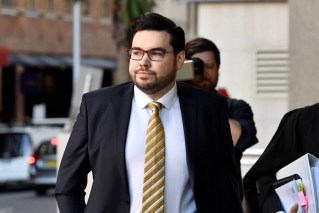Fifteen times politicians’ mouths let them down

Bob Hawke's 1983 summit kicked off an unmatched reform era. Photo: AAP
Politics is not usually the career of choice for those prone to saying the wrong thing – unless you’re the Liberal Democrat Senator David Leyonhjelm, of course.
The outspoken senator casually used the c-word on Twitter last week during a heated exchange about Immigration Minister Peter Dutton’s accidental text message to a journalist calling her a “mad f—ing witch”.
Senator Leyonhjelm was arguing that Acting Opposition Leader, Labor Senator Penny Wong, was “protesting too much” about the issue, saying offence is taken, not given.
• Barnaby Joyce eyes Deputy Prime Ministership
• PM: no photo leak investigation
• Turnbull’s government ‘has a sexism problem’
In response, one Twitter user asked the Senator: “If someone called you a baldy lunatic f—wit, you’d be fine with it?”

David Leyonhjelm put his foot in it. Photo: Getty
“I’d call you a c—. And probably a rude name after that,” Senator Leyonhjelm replied.
It’s not the first time the Senator’s blunt language has attracted criticism. Late last year he stated that “all cops are bastards” and in 2014 he said former prime minister John Howard “should be shot” for introducing strict gun control measures after the Port Arthur massacre.
But the straight-talking Senator is far from the only politician to put his foot in his mouth.
Here are 15 more infamous incidents that aren’t as foul-mouthed, but just as cringeworthy:
2010: Five months after a trip to visit Australian troops in Afghanistan, the Seven Network broadcast footage of PM Tony Abbott discussing the death of Lance Corporal Jared MacKinney. “It’s pretty obvious that, well, sometimes shit happens, doesn’t it?” Mr Abbott said.
1990: Australia had entered a serious economic crisis. Treasurer Paul Keating responded accordingly. “The first thing to say is, the accounts do show that Australia is in a recession. The most important thing about that is that this is a recession that Australia had to have.” In 1986 he said the economy was in danger of turning Australia into “a banana Republic”.
2014: During the election campaign, Mr Abbott was asked to compare former Liberal MP Jackie Kelly with current Liberal candidate Fiona Scott. “They’re young, feisty, I think I can probably say have a bit of sex appeal and they’re just very connected with the local area,” he said. The next day he defended the comments and said: “As the kids suggested to me, I had a dad moment. A daggy dad moment.”

Paul Keating famously dubbed the 1990’s recession the ‘recession we had to have’. Photo: AAP
1982: During a 12-month freeze on wages in 1982, then-prime minister Malcolm Fraser told workers “life wasn’t meant to be easy”. The line originally came from a George Bernard Shaw play ‘Methuselah’: “Life wasn’t meant to be easy, my child; but take courage, it can be delightful.” His political opponents seized on it as an example of how a man born to wealth and privilege failed to understand the concerns of everyday Australians.
2013: At a Liberal Party function, Tony Abbott was criticising Prime Minister Kevin Rudd. “No one, however smart, however well-educated, however experienced, is the suppository of all wisdom.” The word he needed was “repository”.
1971: Labor leader Gough Whitlam announced his bold plan to visit Chairman Mao, leader of the forbidden “Red China”, a country Australia did not “recognise”. Prime Minister Billy McMahon seized on this with glee, and called Whitlam “the running dog of Chairman Mao”. Soon after, to McMahon’s gross embarrassment, US president Richard Nixon announced his own plans to visit China. Whitlam defeated McMahon in the election of 1972, becoming the first Labor leader to win since Ben Chifley in the 1946 election.

Pauline Hanson angered many with her contentious views. Photo: AAP
1998: Pauline Hanson’s One Nation gained 9 per cent of the vote at the 1998 election, but then fell into decline. Ms Hanson blamed John Howard. “It has been widely recognised by all, including the media, that John Howard sailed home on One Nation policies. In short, if we were not around, John Howard would not have made the decisions he did.”
2006: Labor leader Kim Beazley confused US Presidential adviser Karl Rove with Australian television personality Rove McManus. He was commenting on the tragic death of McManus’s wife Belinda Emmett. “The first thing I want to say is this: today our thoughts and the thoughts of many, many Australians will be with Karl Rove as he goes through the very sad process of burying his beloved wife. And I just want him to know that my thoughts and the thoughts of my colleagues are very much with him today.”
2014: Treasurer Joe Hockey tried to reassure us that the proposed fuel tax increase would not hurt poorer Australians. “The poorest people either don’t have cars or actually don’t drive very far in many cases. But, they are opposing what is meant to be, according to the Treasury, a progressive tax.”
1966: Prime Minister Harold Holt sought to assure US President Lyndon B. Johnson that Australia supported American expansion into the unpopular and disastrous Vietnam war. He concluded a speech in Washington, at which Johnson was present, with the cringing assurance that Australia was “all the way with LBJ”.

Bob Hawke was forced to apologise in 1989. Photo: Getty
1989: Prime Minister Bob Hawke was forced to apologise after labelling a heckler on the campaign trail in Whyalla in South Australia a “silly old bugger”. The 74-year-old pensioner yelled at him that “you get more a week than I do in a year”. “I don’t know what you are talking about, you silly old bugger,” Mr Hawke replied.
1989: Maverick MP Bob Katter made headlines in 1989 for famously promising to “walk to Bourke backwards if the poof population of North Queensland is any more than 0.001 per cent”. Though his half-brother later came out as gay, Mr Katter continued to insist gay marriage “isn’t an issue that concerns voters in his electorate”.
1994: As opposition leader, Liberal Alexander Downer stunned the party faithful into silence when he told them at a dinner that the party’s slogan, ‘The Things That Matter’, should be changed to “the things that batter”, to reflect their domestic violence policy. This merry jest then contributed to Mr Downer losing the leadership, but in 1996 he was appointed Foreign Affairs minister by John Howard, a post he held until 2007.
2013: The Liberal Party candidate for the seat of Greenway Jaymes Diaz expressed his support and admiration for the Liberal “six-point policy” on returning the asylum seeker boats. When closely quizzed by a television reporter on the detail of the policy, Mr Diaz could not name one of the six points.
1974: Gough Whitlam won his second Federal election, defeating Liberal leader Billy Snedden. Labor won 66 seats and the Coalition 61. But Snedden was reluctant to concede defeat. He embarrassed his party by insisting “while we didn’t win, we didn’t lose either”.









